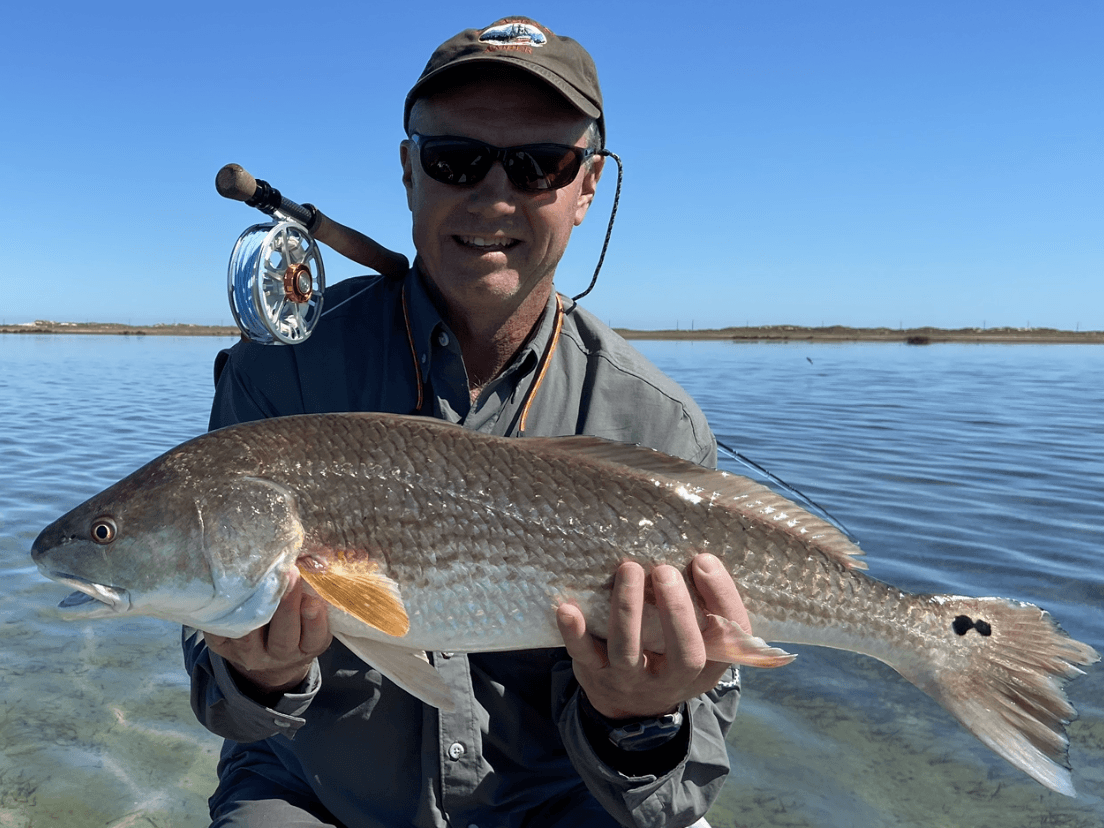Jeff Mackay, Retired Project Leader at Malheur National Wildlife Refuge

For this profile, a Q&A with Jeff Mackay before he retires from his position with Malheur National Wildlife Refuge May 2023.
How did you make your way to Malheur National Wildlife Refuge?
My strong connection to nature began early in life through family adventures in the foothills and mountains of rural northern California. The rural connection was amplified through 10 years of participation in the local 4-H program. Because of my passion for wild critters and natural landscapes, the decision to become a Wildlife Biologist was without deliberation nor hesitance. After completing a Bachelor of Science degree at Humboldt State University, I was fortunate to serve in several seasonal positions as Biological Science Technician at several National Wildlife Refuges in California and Alaska. My last ‘Biotech’ position provided the opportunity to pursue a graduate degree. Upon completion of the final season of fieldwork, I accepted a term position as a Wildlife Biologist at the Salton Sea National Wildlife Refuge. My primary role here was to provide technical assistance to owners of private wetlands throughout southern California for development and for management of seasonal habitat for wintering waterfowl. While my work as a newly minted Wildlife Biologist was rewarding and fulfilling, the long hot Sonoran Desert summers were less than desirable, and there was that second semester to complete for the Master of Science degree. So, after three years in the desert, I returned to Humboldt State and soaked up the wet and cool coastal weather while finishing my graduate degree program. Fresh with my MS degree in hand I accepted a position as the Wildlife Biologist for the Ruby Lake National Wildlife Refuge. Being somewhat of a hermit, the location could not have suited me better! After 20 years of surveys, studies, and management of marsh, wetlands, and meadows at Ruby Lake, as well as creating long-lasting friendships, it became time to leave the Wildlife Biologist job series and continue my career as a Refuge Manager. I soon landed another great assignment as the Refuge Manager at the Hart Mountain National Wildlife Refuge. Although still working in the northern Great Basin, I consequently exchanged wetlands and waterfowl for sagebrush and pronghorn. After six years at Hart Mountain, and, after 26 years of living on remote duty stations, I could not pass up the opportunity to return to high desert wetlands when I was offered the Deputy Project Leader position at the Malheur National Wildlife Refuge. I was content to finish out my career in this capacity, but another opportunity came my way when the Project Leader retired. I now hold the Project Leader position at Malheur National Wildlife Refuge.
What have you enjoyed about your work?
Every day, week, and year - all thirty-eight! Throughout my career I have been fortunate to have worked at several amazing refuges, worked with many exceptional people, and lived in some wonderful rural communities. As a wildlife biologist my duties generally focused on assessing wetland habitat conditions and inventorying wetland-dependent bird use and population trends. From this work I was able to influence and guide habitat management direction. I have always been drawn to water: creeks, rivers, lakes, ponds, and marshes, and my biologist duties provided substantial opportunities to spend countless hours in these environs. In my role as a Refuge Manager, working with people could sometimes, but not often, be challenging, however the rewards were immense. There is nothing more satisfying than working with dedicated and passionate Refuge teams (staff and partners) to resolve complex and controversial issues for outcomes acceptable to everyone.
What memories do you take with you?
I have truly loved working on National Wildlife Refuges, and I have always been extremely grateful for the opportunities to have had a role turning the dial on conservation successes. I will miss the social interactions of working with many exceptional individuals and groups of people over the years; from evening hangouts with other field crews at the Fort Wainwright barracks in Fairbanks, the Friday afternoon tailgate carne asada gatherings at Salton Sea National Wildlife Refuge, the volleyball games with the summer Youth Conservation Crew, so many potluck dinners with staff and neighbors, winter biscuits and gravy breakfasts, and holiday celebrations at Ruby Lake National Wildlife Refuge, the Friday evening BBQ’s with staff, volunteers and research crews at Hart Mountain National Antelope Refuge, to the Thirsty Thursday gatherings in Burns. I am honored and humbled to have had the opportunity to have led our team who are building on the foundation of work accomplished by others who came before us and in many ways created unique and rewarding opportunities for my involvement in managing the Malheur National Wildlife Refuge. Quoting Norman Maclean in A River Runs Through It: “Eventually all things merge into one, and a river runs through it. The river was cut by the world’s great flood and runs over rocks from the basement of time. On some of those rocks are timeless raindrops. Under the rocks are the words, and some of the words are theirs”.
Harney County has a collaborative culture, what has this meant for your work?
Participation in the collaboratives has been our willing practice since the beginning of the Comprehensive Conservation Plan development. It is not only expected by partners but it is essential for bringing everyone together to move conservation and management of the Refuge’s natural resources in the direction provided in the Plan. “It is a fact that in the right formation, the lifting power of many wings can achieve twice the distance of any bird flying alone.” The collaboratives provide a place where every voice is heard, and everyone listens without judgement because all members value each individual’s participation.
The numerous successful collaboratives, whether they be the Comprehensive Conservation Plan collaborative or the Harney Basin Wetlands Collaborative or the many other collaboratives in Harney County, are proof that we are better when we work together. A firm foundation of consensus-based collaboration was established before I transferred to the Malheur National Wildlife Refuge and remains the foundation for working with others, who may have different values and viewpoints, to resolve complex and sometimes controversial issues.
Communication is the foundation of collaboration, and every voice brings value to a conversation. Members of the collaboratives, whether they are subject matter experts to individuals interested in participating in discussions of natural resource management, assure that most if not all aspects of the topic of interest at the time are brought forward for consideration in the conversation. This process serves to yield consensus and creates an environment for durable decision outcomes.
With retirement in your sights, what are you looking forward to?
I am definitely an outside activity “junkie”. There is nothing better than listening to the waking day free from human noise, roaming the woods and fields, floating a river, hiding in a marsh, boating on the big ponds, hanging out in a blind, huffing through the rocks and crags, and sitting around a campfire. Retirement will enable me to pursue those activities without the need to cram everything into a few days before returning to work. Gone will be the Sundays when I think to myself, “I need to go back to work to recover from the weekend”! I look forward to enjoying these various environs during the less crowded times and at a more leisure pace. I have a favorite quote attributed to Robert Travers titled “Testament of a Fisherman”; it goes like this: “I fish because I love to; because I love the environs where trout are found, which are invariably beautiful. Unlike the environs where crowds of people are found, which are invariable ugly; because of all the television commercials, cocktail parties, and assorted social posturing I thus escape; because, in a world where most men seem to spend their lives doing things they hate, my fishing is at once an endless source of delight and an act of small rebellion; because trout do not lie or cheat and cannot be bought or bribed or impressed by power, but respond only to quietude and humility and endless patience; because I suspect that men are going along this way for the last time, and I for one don’t want to waste the trip; because mercifully, there are no telephones on trout waters; because only in the woods can I find solitude without loneliness; because bourbon out of a tin cup always tastes better; because maybe one day I will catch a mermaid; and, finally, not because I regard fishing as being so terribly important, but because I suspect that so many other concerns of men are equally unimportant and not nearly so much fun.”

